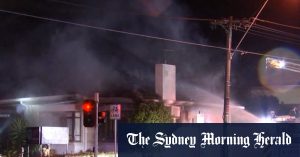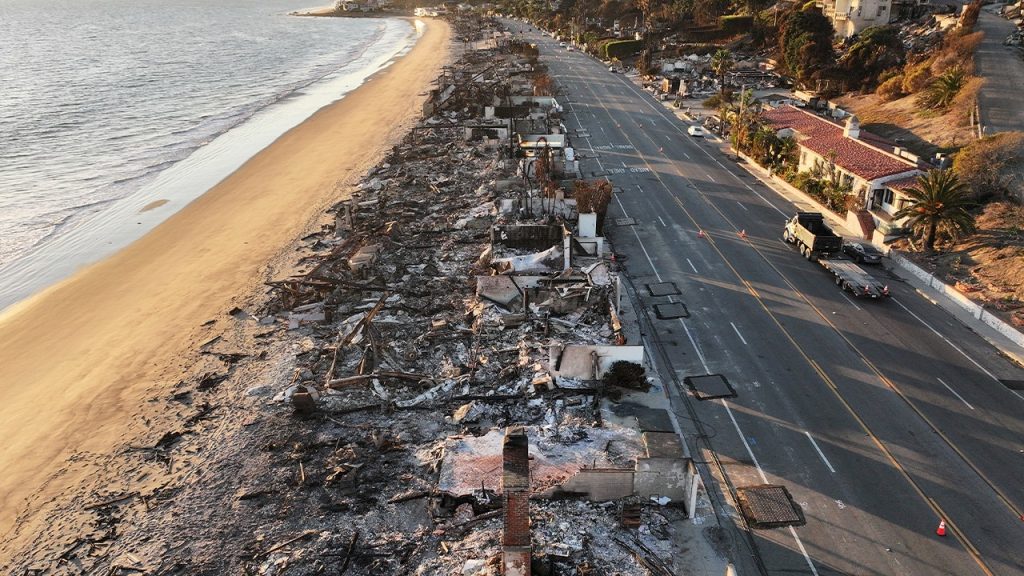The devastating wildfires that ravaged Los Angeles have ignited a public debate concerning the efficacy of existing water infrastructure in combating such large-scale emergencies. Central to this discussion is the role of municipal water systems, their design limitations, and whether policy decisions exacerbated the firefighting efforts. Kathryn Sorensen, an expert in water management, underscores that municipal water systems are fundamentally not equipped to handle the demands of massive wildfires. Their primary function is to provide a consistent water supply for daily community needs and to address smaller, more localized fires, not widespread conflagrations. This inherent limitation brings into sharp focus the need to reassess water system capacities and operational priorities in anticipation of a future predicted to be hotter and drier, with increased risks of large-scale wildfires.
The controversy surrounding the empty Santa Ynez Reservoir, located near the Palisades Fire, highlights the complex interplay of infrastructure preparedness, budget constraints, and regulatory processes. The reservoir, which was empty at the time of the fires, has become the subject of a lawsuit against the Los Angeles Department of Water and Power (LADWP). The lawsuit alleges that cost-cutting measures led to delays in necessary repairs, effectively rendering the reservoir unusable during the critical period. LADWP, however, counters that the reservoir was shut down to comply with drinking water safety regulations and that the delays were a result of the city’s established bidding process. Furthermore, LADWP asserts that its water systems were designed to exceed the typical community needs and welcomes a review of existing codes and requirements in light of the challenges posed by climate change and extreme wildfires.
While the empty Santa Ynez Reservoir has become a symbol of potential governmental missteps, Sorensen cautions against drawing definitive conclusions about its impact on the firefight. She posits that even if the reservoir had been full, its contribution would likely have been marginal given the sheer scale of the wildfire. While acknowledging the possibility that a full reservoir might have boosted water pressure in hillside areas, potentially saving individual structures, she doubts it would have significantly altered the overall outcome, particularly at the neighborhood level. The sheer intensity and scope of the fire likely would have overwhelmed the available water resources, regardless of the reservoir’s status.
The Los Angeles wildfires, leaving a trail of destruction across over 40,600 acres, destroying more than 12,300 structures, and tragically claiming at least 27 lives, with dozens still missing, present a stark reminder of the devastating power of these natural disasters. While immediate firefighting efforts are paramount, the aftermath demands a thorough examination of the contributing factors and potential preventative measures. This includes a critical assessment of existing water infrastructure, its limitations, and the need for adaptation in the face of evolving climate conditions. The debate surrounding the Santa Ynez Reservoir, while indicative of potential shortcomings, should also serve as a catalyst for a broader discussion on resource allocation, infrastructure preparedness, and the development of comprehensive strategies to mitigate the impact of future wildfires.
The controversy surrounding the Santa Ynez Reservoir also underscores the challenges of balancing competing priorities in public infrastructure management. The need to maintain safe drinking water standards, adhere to established procurement processes, and address budgetary constraints all play a role in the decision-making process. However, the devastating consequences of the wildfires raise questions about whether these considerations were adequately weighed against the potential risks of leaving a key water resource unavailable during a high-risk fire season. The ongoing investigation into the matter will hopefully shed more light on the circumstances leading to the reservoir’s condition and inform future policy decisions.
Moving forward, a comprehensive review of water system capacities and operational priorities is essential. This review should encompass not only the physical infrastructure, such as reservoirs and pipelines, but also the underlying policies and procedures that govern their management. Considerations should include the potential impact of climate change on water availability and wildfire risk, the development of more robust emergency response plans, and the exploration of alternative water sources for firefighting purposes. The lessons learned from the Los Angeles wildfires should serve as a wake-up call for communities across the country, urging them to proactively address the increasing threat of large-scale wildfires and ensure the adequacy of their water infrastructure to meet this evolving challenge. The scale of destruction reinforces the urgency of this task.










